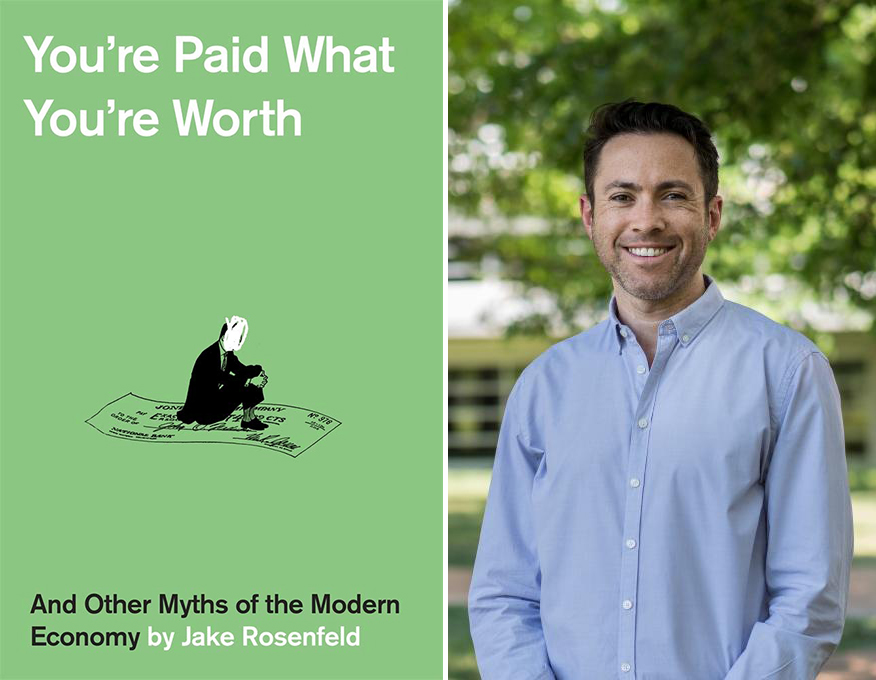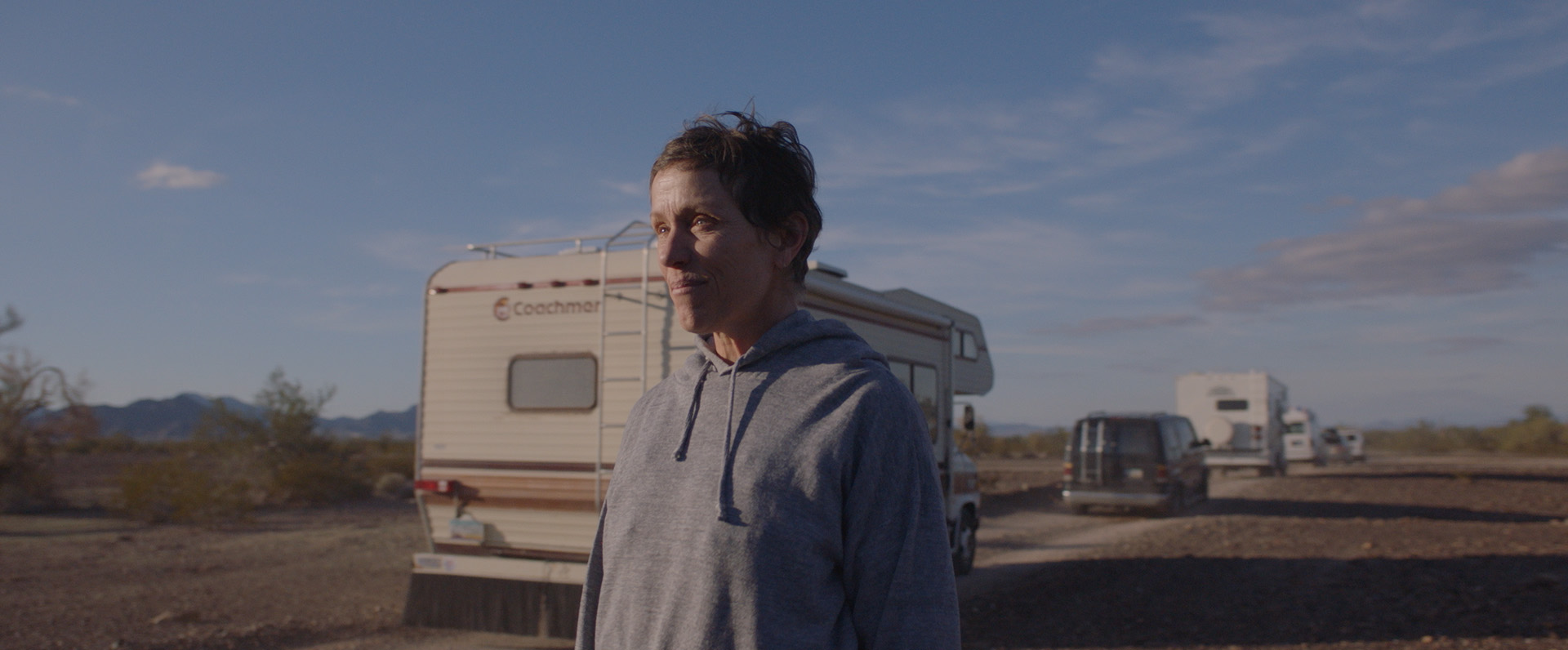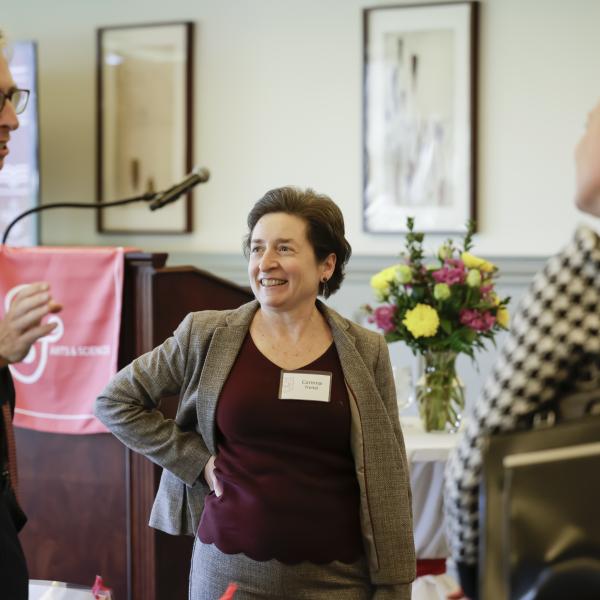Jake Rosenfeld is professor of sociology in the Department of Sociology.

Nomadland is a beautiful film. It is also deeply flawed.
Set in the vastness of the U.S. west, the film centers on Fern, played by Frances McDormand, the rare fictional character in a movie that integrates dozens of real people as they navigate their 60s and 70s holding down a series of seasonal jobs. The film swept core categories in this year’s Golden Globes and stands as a favorite to gather more trophies in the upcoming Academy Awards.
The movie is based on Jessica Bruder’s book by the same name, and the book expanded on a brilliant 2014 essay Bruder published in Harper’s, “The End of Retirement: When You Can’t Afford to Stop Working.” Key interviewees of Bruder appear as themselves in the movie, a feature of the director Chloé Zhao’s unique approach to honoring the reality of her characters’ lives in her storytelling.
We learn early on that Fern’s husband worked for U.S. Gypsum in the company town of Empire, Nevada before he succumbed to cancer. Fern may be fictional, but Empire was anything but. This was a company town, where your employer not only owned your time as soon as you entered the mine, it also owned the house that you retired to at the end of your working day. Bear in mind Nomadland is a contemporary story. Empire wasn’t a company town of some bygone era. U.S. Gypsum shut the mine in early 2011, instantly transforming Empire into a ghost town — the zip code erased and all — and the workers lost more than a job. They lost their homes.
In a 2011 story in the Las Vegas Review-Journal, the engineering manager for the mine summed up the tragedy: “It was business. … There was nothing personal.” There was also nothing left for the employees or their families. Fern’s fictional account is based on true tragedy. Fern thus finds herself without a spouse or a house. From there she joins a massive traveling caravan of “workampers”: nomads who live out of their vehicles, picking up seasonal jobs such as picking beets, staffing campsites, and organizing all the packages we order at giant Amazon warehouses. Much of this work is grueling. None of it is well-paid.
Yet the film doesn’t dwell on the circumstances leading to Fern’s homelessless (or “houselessless,” to use the preferred parlance of many workampers). We do get hints of the backstories leading many to the workamper sites. In the film, Linda May recounts how on Thanksgiving Day of 2010 she planned her suicide after a fruitless search for work. But in the film we don’t get her full accounting: how her own daughter’s family no longer had room for her after they were forced into a small apartment; how a few years after that near-tragedy she once again found herself close to despair working for Home Depot and earning just barely enough to afford her trailer. This was a woman who worked her entire adult life, yet still wondered, as Bruder tells us, “how anybody could afford to grow old.” None of the many jobs she worked so hard at for so long offered a pension.

That’s the real story for so many workampers: the cruelty of an economic system that forces grandparents into seasonal, backbreaking labor. And while the first half of the film provides glimpses of how the characters end up in RV and van camps in Arizona, Nevada and other popular destinations for our 21st century nomads, by the second the director shifts her focus onto the themes of grief, wanderlust and the beautiful communities created by these restless souls.
That’s fine, and if the film had no social commentary it would remain a remarkable visual achievement. Plus rare is the moviegoer that wants to spend two hours being preached to about the country’s woefully inadequate social safety net. But Zhao is dexterous enough to interweave a number of themes more seamlessly than displayed here. By referencing the wrenching economic dislocations early in the film, and largely abandoning them midway through, the film does a disservice to the characters whose lived experiences it is so focused on capturing. Telling their stories accurately means presenting them as they really are. To quote Bruder, “they are geriatric migrant labor.” Yes, they grieve lost loved ones, and form bonds with one another as they travel from job to job. But workampers’ very existence isn’t evidence of Americans’ wandering spirits, or a deep-seated cultural need to leave everything behind to start over. Many of these people had nothing to start with, and all deserve to spend their golden years without worrying about where the next job will be.
Headline image: Fox Searchlight Pictures




